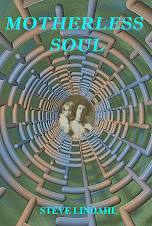 Benediction by Kent Haruf
Benediction by Kent HarufMy rating: 4 of 5 stars
The main plot in Benediction by Kent Haruf is the story of Dad Lewis at the end of his life. He's been diagnosed with terminal cancer. We follow him through his last days. There are a few scenes about the indignity of dying from a debilitating disease, but the novel focuses mainly on Dad's reflections on his life. Dad has been a hard-working, successful man. He owns a hardware store with a few employees and has made enough money to be a good provider. He's been a good family man in his relationship with his wife, Mary, and his daughter, Lorraine. However, his son, Frank, did not turn out to be the exact son Dad wanted and this had led to a conflict. This is one of the two main issues Dad reflects on as he awaits his fate. The second issue is his treatment of an employee who committed a fireable offense. I don't want to discuss specifics in this review, but I can say that Haruf has not passed judgment on these issues. He's left that to Dad and to the book's readers.
The two other plots running through the novel are the story of a minister who seems to be either extremely moral or self-righteous, depending on one's point of view, and the story of a woman who has an affair with a married man. The characters within each of these plots interact, but their conflicts rarely overlap. I found that choice interesting and I believe it made the novel better.
Benediction has been called a “quiet” novel by a number of reviewers who look at its focus on small details. I think that's accurate, but I would add both “moral” and “self-evaluating” to the description. It's about choices, small and large, that sometimes go the way one expects, but sometimes take unusual turns. Whether the evaluating is done by a dying man, a man whose career is in a downward spiral, or a woman whose life hasn't gone the way she'd hoped, the process of appraising moral decisions after the results are known is fascinating.
Steve Lindahl – author of Motherless Soul and White Horse Regressions
View all my reviews









